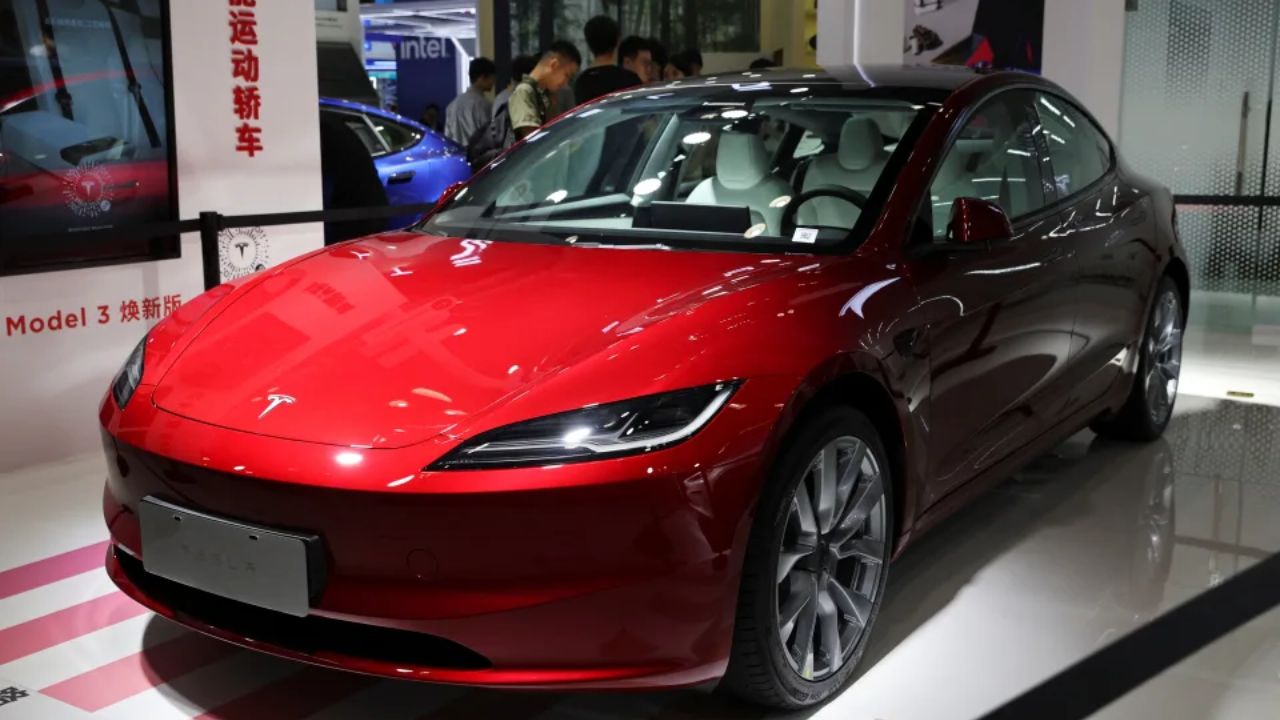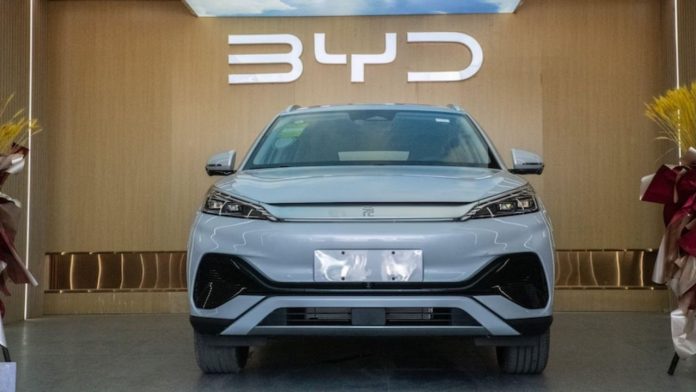In the competition to claim dominance in the global electric car market, Chinese automaker BYD is vigorously expanding its presence abroad, despite encountering mounting obstacles to accessing the U.S. market.
Hailing from Shenzhen, the company has been dipping its toes into various countries and has witnessed immediate sales triumphs, often within just one year of entering a new market.
Amidst uncertainties surrounding Chinese electric vehicle (EV) exports to key markets such as the U.S. and Europe, BYD is intensifying its efforts to boost overseas sales by relocating production to regions perceived as more welcoming. Presently, the company is establishing factories in Thailand, Brazil, Indonesia, Hungary, and Uzbekistan.
“They are targeting countries without very strong domestic auto industries, where they are likely to face less political pushback or headwinds from a policy perspective,” observed CLSA research analyst Xiao Feng, highlighting recent developments in the U.S. that underscore the necessity for such a strategy.
The Biden government started looking into whether cars made in China are risky for national security and might limit them. Even though the U.S. is trying to get more people to use electric cars, not many are buying them compared to China.
BYD is swiftly progressing with its plans, commencing with Thailand, where the company anticipates its inaugural factory outside China to be operational by the year’s end. In January, the car company beat Toyota in selling the most passenger cars in Thailand. Surprisingly, they had no sales there just a year ago. Data from Marklines shows this shift.
Once operational, the Thailand facility is expected to cater to the rest of Southeast Asia. EY forecasts that the electric car market in the region will experience exponential growth, reaching at least $80 billion annually in sales over the next decade.
BYD became a top electric vehicle (EV) brand in Southeast Asia, seizing over a third of the market last year. This success came despite hardly selling any cars in the region before. Data from Counterpoint Research confirms BYD’s strong position in the Southeast Asian EV market.
Edge against Tesla
In the ongoing competition to gain an edge over Tesla, BYD made significant strides in Southeast Asia last year, selling 70,000 electric cars and commanding a 35% market share, surpassing rivals Vinfast and even Tesla, as per data from Counterpoint Research.

One of BYD’s key advantages over Tesla lies in its diverse range of offerings targeting the mass market, which includes both hybrid and battery-powered cars. Unlike Tesla, which exclusively focuses on premium-priced, battery-only vehicles, BYD’s inclusion of hybrid options proves advantageous in emerging markets where infrastructure for battery charging remains limited.
Southeast Asia is poised to remain BYD’s most robust overseas market in the near term, as the company sets its sights on doubling its car exports from the previous year to 500,000 by 2024, according to Canalys automotive analyst Alvin Liu.
“The Southeast Asian EV market is still nascent, and consumer behaviors require nurturing,” remarked Liu. He emphasized the significance of “cost-effectiveness,” citing BYD’s Atto 3 and Dolphin models, which are competitively priced in the region.
Reports from local media in January indicated that BYD is investing $1.3 billion to construct an electric car factory in Indonesia in 2024. Additionally, this year, BYD purportedly plans to significantly expand its retail presence in Singapore and the Philippines.
However, BYD declined to comment on these reported plans.
While BYD doesn’t disclose capital expenditure by country, it revealed a substantial autos-related capex of 81.52 billion yuan ($11.33 billion) in the first six months of 2023, nearly double the 45.94 billion yuan reported for the entire year of 2022.
In contrast to Tesla’s direct-dealership model, BYD often relies on local distributors and partners for sales in countries outside China. For instance, in late 2022, BYD inked a distribution agreement with Sime Darby Motors in Malaysia.
Plan for the Americas
Despite escalating scrutiny in the U.S. regarding China’s dominance in the electric vehicle sector, BYD is forging ahead with expansions in Brazil and eyeing opportunities in Mexico, situated right on the U.S. border.

According to BYD’s Americas CEO Stella Li, the company is contemplating the establishment of a factory in Mexico, where it has already commenced sales of electric cars.
Should BYD proceed with the construction of a factory in Mexico, it could potentially serve as a strategic entry point for the Americas, as highlighted by Bill Russo, founder and CEO of investment advisory firm Automobility, during a recent appearance on CNBC’s “Squawk Box Asia.”
“Mexico is part of the USMCA so there is an opportunity to export perhaps from Mexico to North America,” Russo noted, referring to the free trade agreement enacted by the United States, Mexico, and Canada in 2020.
Li reportedly stated at the end of February that BYD does not intend to sell passenger cars in the U.S.
However, BYD declined to comment on this story when approached for a response.
Despite primarily selling in China, BYD exported about 242,000 electric cars out of 3 million last year. This fast expansion, along with other Chinese electric car companies, worries traditional automakers.
In February, the Alliance for American Manufacturing issued a report cautioning that the influx of low-cost Chinese imports could pose an existential threat to the U.S. auto sector, urging Washington to take preemptive measures to block imports from Mexico.
This warning came shortly after company releases confirmed that BYD had surpassed Tesla in terms of vehicle production.
Europe and other markets
As the global shift towards electric vehicles gains momentum, Chinese automakers are presented with promising market opportunities, particularly amidst a deceleration in growth within their domestic market.
“BYD needs to explore additional overseas prospects in regions where electric vehicle adoption is expected to accelerate alongside infrastructure development, ensuring its sustained long-term growth and preventing loss of market share to U.S. and European automakers,” remarked Liz Lee, associate director at Counterpoint Research.
Late last year, BYD disclosed its plans to establish a factory in Hungary, with production slated to commence in three years, signaling its commitment to expanding its presence in Europe.
This announcement coincided closely with the European Union’s initiation of an investigation into the role of subsidies in China-made electric cars, underscoring the regulatory challenges facing Chinese automakers as they seek to penetrate international markets.
In addition to its ventures in Europe, BYD has made inroads into other regions such as Australia, the Middle East, and Africa. In January, the company started making things at a new factory it shares in Uzbekistan, which helps it spread out more around the world.


